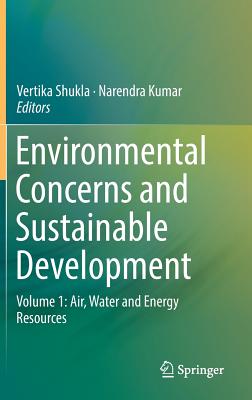相關主題
商品描述
The term soil health refers to the functionality of a soil as a living ecosystem capable of sustaining plants, animals, and humans while also improving the environment. In addition to soil health, the environment also comprises the quality of air, water, vegetation, and biota. The health of soil, plants, animals, people, and the environment is an indivisible continuum.
One of the notable ramifications of the Anthropocene is the growing risks of decline in soil health by anthropogenic activities. Important among these activities are deforestation, biomass burning, excessive soil tillage, indiscriminate use of agrochemicals, excessive irrigation by flooding or inundation, and extractive farming practices. Soil pollution, by industrial effluents and urban waste adversely impacts human health. Degradation of soil health impacts nutritional quality of food, such as the uptake of heavy metals or deficit of essential micro-nutrients, and contamination by pests and pathogens. Indirectly, soil health may impact human health through contamination of water and pollution of air.
This book aims to:
Present relationships of soil health to human health and soil health to human nutrition.
Discuss the nexus between soil degradation and malnourishment as well as the important links between soil, plant, animal and human health.
Detail reasons oil is a cause of infectious diseases and source of remedial measures.
Part of the Advances in Soil Sciences series, this informative volume covering various aspects of soil health appeals to soil scientists, environmental scientists and public health workers.
商品描述(中文翻譯)
土壤健康一詞指的是土壤作為一個活生生的生態系統的功能,能夠支持植物、動物和人類的生存,同時改善環境。除了土壤健康,環境還包括空氣、水、植被和生物的質量。土壤、植物、動物、人類和環境的健康是一個不可分割的連續體。
人類世的一個顯著後果是由於人類活動導致土壤健康下降的風險日益增加。其中重要的活動包括森林砍伐、生物質燃燒、過度耕作、隨意使用農藥、過度灌溉(如淹水)以及開採性農業實踐。工業廢水和城市垃圾造成的土壤污染對人類健康產生不利影響。土壤健康的退化影響食物的營養質量,例如重金屬的吸收或必需微量元素的缺乏,以及害蟲和病原體的污染。間接地,土壤健康可能通過水源污染和空氣污染影響人類健康。
本書旨在:
呈現土壤健康與人類健康之間的關係,以及土壤健康與人類營養之間的關係。
討論土壤退化與營養不良之間的聯繫,以及土壤、植物、動物和人類健康之間的重要聯繫。
詳細說明土壤是傳染病的原因及其補救措施的來源。
本書是《土壤科學進展》系列的一部分,涵蓋土壤健康的各個方面,對土壤科學家、環境科學家和公共衛生工作者具有吸引力。
作者簡介
作者簡介(中文翻譯)
拉坦·拉爾(Rattan Lal),博士,是俄亥俄州立大學土壤科學的傑出大學教授及碳管理與封存中心的主任,同時也是冰島大學的兼任教授。他目前的研究重點包括氣候韌性農業、土壤碳封存、可持續強化、提高農業生態系統的使用效率,以及熱帶土壤資源的可持續管理。他曾獲得旁遮普農業大學(2001年)、挪威生命科學大學(2005年)、摩爾多瓦阿列庫·魯索巴爾蒂國立大學(2010年)、德國德累斯頓工業大學(2015年)、西班牙萊里達大學(2017年)、美國明尼蘇達州聖彼得的古斯塔夫·阿道夫學院及智利瓦爾帕萊索的PUCV(2019年)等多所大學的榮譽科學博士學位。他曾擔任世界土壤與水土保持協會(1987-1990年)、國際土壤耕作研究組織(1988-1991年)、美國土壤科學學會(2005-2007年)的會長,並於2017至2018年擔任國際土壤科學聯合會的會長。他曾是美國國家氣候變化評估聯邦諮詢委員會(NCADAC,2010-2013年)的成員、美國能源部SERDP科學諮詢委員會(2011-2018年)的成員、德國波茨坦高級可持續研究所全球土壤論壇的高級科學顧問(2010-2015年)、歐盟農業、糧食安全與氣候變化聯合計畫倡議(FACCE-JPI,2013-2016年)諮詢委員會的成員,以及德國德累斯頓聯合國大學物質流與資源綜合管理研究所(UNU-FLORES,2014-2019年)諮詢委員會的主席。拉爾教授曾是IPCC(1998-2000年)的主要作者。他指導了115名研究生、54名博士後研究人員,並接待了174名訪問學者。他已發表/共同發表950篇經審核的期刊文章,撰寫了20本書籍並編輯/共同編輯了75本書籍。在2014至2019年期間,路透社湯森列出他為全球最具影響力的科學思想家之一,其出版物的引用次數在農業科學領域中位居前1%。他是2018年GCHERA世界農業獎、2018年格林卡世界土壤獎及2019年日本獎的獲得者。














